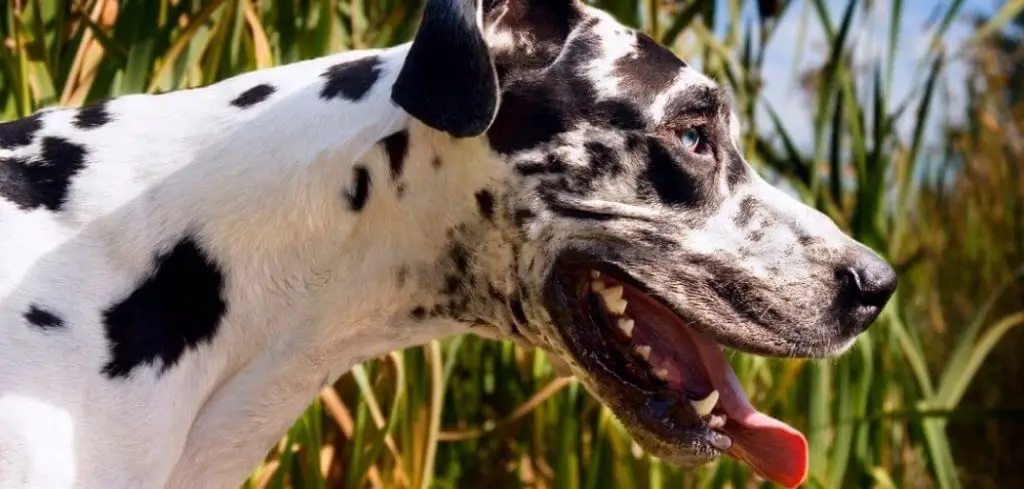Panting accompanied by rapid breathing in dogs can signal underlying medical issues. While panting is normal for regulating body temperature, excessive or unusually fast breathing may indicate serious health conditions. Recognizing the causes early helps ensure timely intervention and relief for your dog.
We outline the common causes of panting and rapid breathing in dogs, what you can do at home, and when to seek veterinary help.
Table of Contents
Dog Panting and Rapid Breathing — Why It Happens
Dog panting and rapid breathing together usually indicate that your dog is struggling to get enough oxygen or regulate its body temperature. Common causes include overheating, anxiety, pain, heart or lung disease, anemia, or respiratory infections.
Unlike normal panting after exercise, rapid breathing at rest suggests an underlying issue affecting the lungs, heart, or blood circulation. In some cases, toxins, fever, or allergic reactions can also trigger this combination.

Dog Panting and Rapid Breathing: Common Causes
Heatstroke or Overheating
Heatstroke is a serious cause of panting and rapid breathing in dogs. When dogs overheat, their body attempts to cool down through panting, which can escalate into dangerously fast breathing.
Overheating can occur during hot weather, prolonged exercise, or being left in a warm environment.
Other signs include drooling, lethargy, red gums, vomiting, and collapse. Immediate cooling and veterinary care are critical to prevent organ damage or death.
Read more: Dog Panting Excessively and Restless (Identify the warning signs)
Respiratory Disorders
Respiratory issues like pneumonia, bronchitis, or collapsed trachea can cause panting and rapid breathing.
Difficulty in moving air efficiently forces dogs to breathe faster, often accompanied by coughing or wheezing.
Additional symptoms may include nasal discharge, lethargy, and bluish gums. Early veterinary evaluation is essential to manage infections, inflammation, or structural airway problems.
Heart Disease
Heart disease can lead to panting and rapid breathing due to poor circulation and fluid buildup in the lungs.
Conditions such as congestive heart failure, heart murmurs, or cardiomyopathy increase strain on the cardiovascular system.
You may notice coughing, exercise intolerance, fatigue, and swollen limbs. Timely diagnosis and treatment, including medications or dietary adjustments, can improve quality of life and prevent severe complications.
Pain or Discomfort
Pain from injuries, arthritis, or internal issues can cause panting and rapid breathing. Dogs may exhibit shallow or fast breaths when experiencing discomfort as a stress response.
Watch for restlessness, vocalizations, reluctance to move, or changes in posture. Identifying and treating the source of pain is crucial for comfort and wellbeing.
Anxiety or Stress
Anxiety and stress can trigger panting and rapid breathing. Fearful situations, separation anxiety, loud noises, or new environments may prompt dogs to breathe quickly and appear agitated.
Other signs include pacing, trembling, whining, and clinginess. Behavioral management, a calm environment, and sometimes veterinary-recommended supplements or medications can help alleviate symptoms.
Respiratory Infections
Infections such as kennel cough, influenza, or other viral/bacterial conditions can lead to panting and rapid breathing. These infections irritate the airways, making breathing more laborious.
Symptoms often include coughing, sneezing, nasal discharge, lethargy, and decreased appetite. Veterinary care ensures proper treatment and prevents secondary complications.
Obesity or Overexertion
Overweight dogs or those who exert themselves heavily may pant and breathe rapidly. Extra body weight strains the respiratory and cardiovascular systems, and exercise can push dogs into fast breathing to meet oxygen demands.
Look for excessive panting after minimal activity, fatigue, or reluctance to play. Weight management and moderated exercise are key to reducing stress on the body.
What to Do If Your Dog Is Panting with Rapid Breathing
Provide a cool, comfortable environment and encourage rest.
Offer water to prevent dehydration and help regulate body temperature.
Monitor your dog closely for worsening breathing, unusual sounds, or behavioral changes.
Avoid excessive handling that may stress or aggravate the dog further.
Schedule a veterinary visit to identify the underlying cause, especially if symptoms persist, worsen suddenly, or are accompanied by other signs like lethargy or coughing.
When to Call or Visit Your Vet
Immediate veterinary attention is warranted if your dog shows:
Rapid, labored, or noisy breathing
Signs of distress, collapse, or blue/pale gums
Persistent coughing, vomiting, or lethargy
Sudden onset after minimal activity or in normal temperatures
Any indication of pain, swelling, or discomfort
Quick evaluation ensures proper treatment and prevents severe complications like heart failure, respiratory distress, or organ damage.
Read more: Dog Breathing Heavy and Fast (Understand the underlying causes)
Key Takeaway
Panting and rapid breathing in dogs can stem from heatstroke, respiratory disorders, heart disease, pain, anxiety, infections, or overexertion.
Observing your dog’s behavior, providing a safe environment, and seeking timely veterinary care are essential for ensuring comfort and health.
